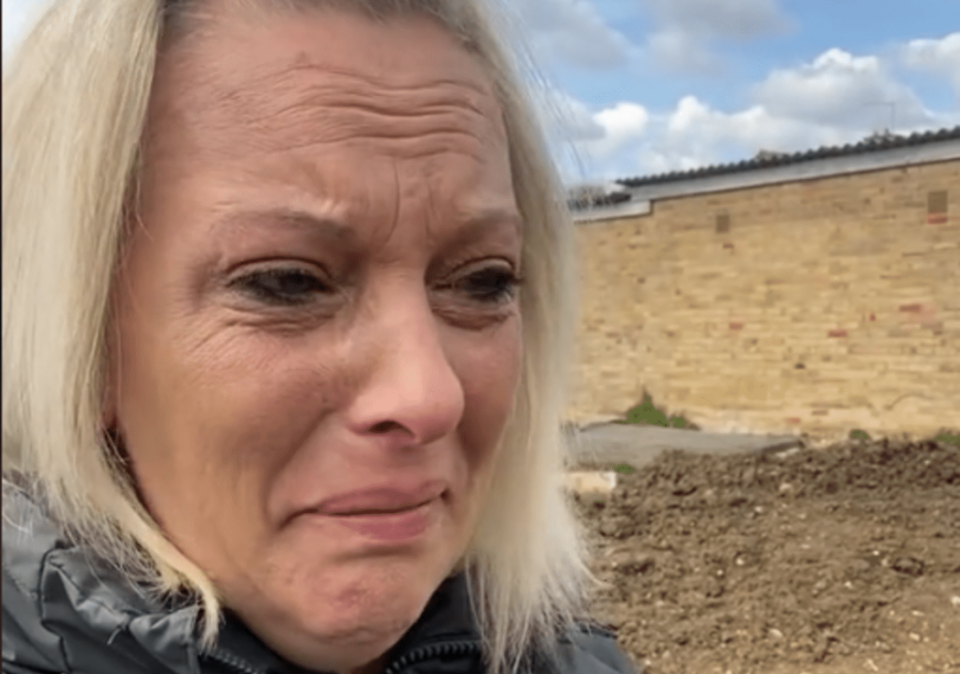Salt tears won’t wash: why those viral charity campaigns aren’t all they seem

From Carly Burd’s salted allotment to Captain Tom, social media charity campaigns are ripe for exploitation. The regulator needs to wade in and people need to wise up about who exactly they are pledging money to, says Fergal Parkinson
Carly Burd became a social media sensation – by crying. She racked up 5m views on Tiktok alone for a lachrymose post in which she described her one-woman campaign to help impoverished Essex families face the cost of living crisis… and how it had been derailed by a bitter troll who spread salt over the allotment where she grew the produce to do this. Nothing would grow there again, she wept.
Social media fame led to legacy media interest and Burd was soon featured everywhere from Good Morning Britain to the New York Post, with all that attention generating donations totalling over £250,000, and Gary Lineker and Dragon’s Den star Steven Bartlett among her benefactors.
But last weekend it emerged, via an investigation by The Daily Mail, that the situation was more complicated than it had first appeared: there were questions over what had happened to the money, over the status of the operation she had taken to describing as ‘my charity’ and, crucially, soil testing had discovered that there was no salt on her soil at all.
The Burd case came just a couple of weeks after a similar tale involving ‘Britain’s Kindest Plumber’. James Anderson from Burnley, had received widespread online acclaim and hundreds of thousands of pounds in donations – including a reported £50,000 from Hugh Grant alone – after viral accounts of helping impoverished people with their heating, for free.
But then a BBC investigation found that Anderson had been recycling the same pictures over and over again as purportedly different case studies – and had apparently spent some of the donations on a house for a family member.
Before these twin cases we had the fallout from that ultimate viral social media star, Captain Tom, and his daughter facing repeated questions about her fundraising – and about the spa she had built in her back garden.
Similarly in the US another burning issue at its peak during the pandemic – the explosive Black Lives Matter movement – also eventually led to similar questions.
The syndrome is the same each time – they start with viral social media posts but end in discord and questions about what happened to all the money the public donated.
Surely this has happened enough that we need to take preventative action.
A pledge too spa
It’s time for The Charity Commission to become much more proactive about engaging with viral social media content as soon as it blows up.
Such an august, slow-moving establishment body will undoubtedly feel queasy at the prospect of engaging in rapid reaction work on, say, Tiktok, but it needs to move with the times.
Bona fide charities which are properly regulated and run are visibly missing out on donations through this ad hoc online giving culture that has grown up outside the traditional charity sector.
Any social media post soliciting cash that has even a whiff of hyperbole should be looked at – and quickly.
That plumber, James Anderson, was prominent on Twitter/X. His posts could and should have been appended with those ‘reader added community notes’ to say something like: “The claims here have not been independently verified – it may be better to donate to a recognised poverty charity than an unregulated individual.’
And it’s not just viral content where there are concerns. There are many, many more lower-profile iterations which receive just hundreds rather than hundreds of thousands of likes – but still generate cash.
Your mate who is running the London Marathon and seeking donations via Just Giving for Shelter is one thing. Fine – good for them. By all means pledge £30 to support them. But that person regularly posting videos of sad eyed dogs which she claims to be rescuing – is it really a good idea to send her money directly without knowing more?
These cases concerning pseudo or suspect charities are part of a wider online problem around what’s real and what’s not across a huge spectrum of issues from romance fraud to AI generated images promoted as real.
And they can have real world consequences.
Just this week, for instance, a BBC investigation found a worrying amount of fake news on Tiktok around the impending general election. This on a platform that has rapidly become a primary news source for our youngest voters.
The main strand of my business is in preventing deception by verifying that people online are who they say they are. It’s no longer enough to think of this applying only to people who send you unsolicited emails about diamond mines in Africa or add you to Whatsapp groups about wealth creation.
Misinformation is everywhere and when it is hitting the charity sector, that sector’s regulator needs to wade in and engage.
And people need to wise up about exactly who they are pledging money to.
Fergal Parkinson is a former BBC News correspondent who co-founded City-based mobile identity and fraud prevention company TMT ID